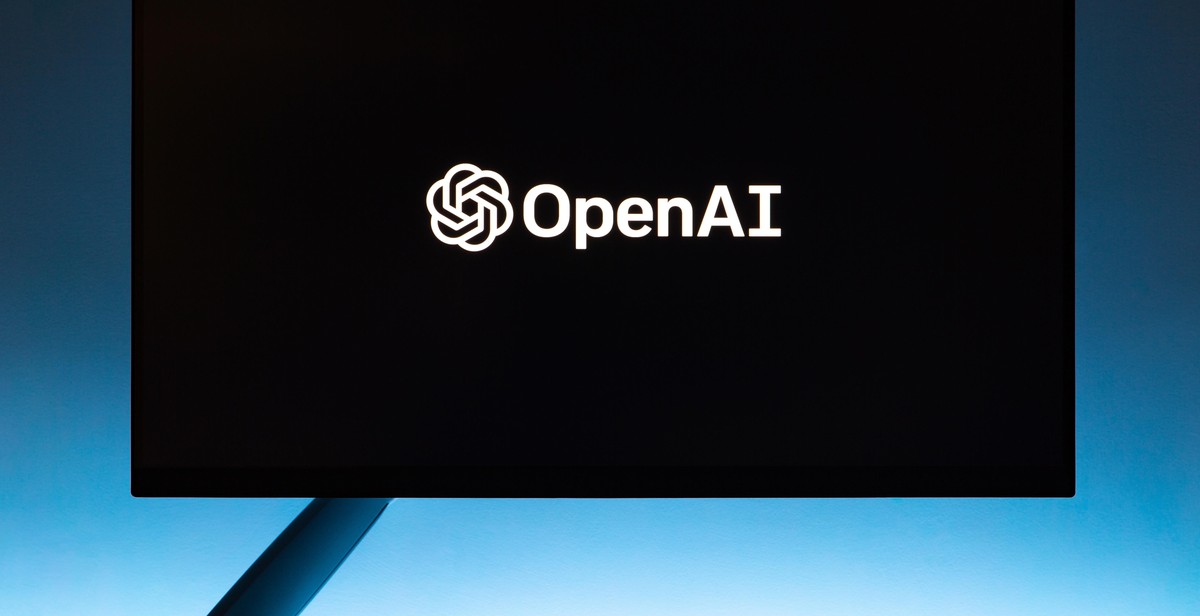The Human Factor in AI: Nurturing Emotional Intelligence in Machines
Artificial Intelligence (AI) has rapidly advanced in recent years, revolutionizing various industries and transforming the way we live and work. However, as machines become more intelligent, there is a growing recognition of the importance of incorporating emotional intelligence into AI systems.
Emotional intelligence, often referred to as EQ, encompasses the ability to understand, manage, and express emotions effectively. While machines excel in analyzing vast amounts of data and performing complex tasks, they lack the innate human ability to perceive and respond to emotions.
Incorporating emotional intelligence into AI systems can enhance their decision-making capabilities, improve user experiences, and foster more meaningful interactions between humans and machines. By enabling machines to recognize and respond to human emotions, we can create AI systems that are not only intelligent but also empathetic and understanding.
This article explores the importance of nurturing emotional intelligence in machines, the challenges in implementing it, and the potential benefits it brings to various sectors, including healthcare, customer service, and education. We will also discuss the ethical considerations surrounding emotional AI and the role of humans in shaping and guiding the development of emotionally intelligent machines.
Understanding Emotional Intelligence
Emotional intelligence refers to the ability to recognize, understand, and manage our own emotions, as well as the emotions of others. It involves being aware of our feelings, having empathy for others, and effectively handling interpersonal relationships.
Why is Emotional Intelligence Important?
Emotional intelligence plays a crucial role in various aspects of our lives. Individuals with high emotional intelligence are better equipped to navigate social situations, resolve conflicts, and build strong connections with others. They possess the ability to regulate their emotions, which helps them make rational decisions, manage stress, and adapt to change. Additionally, emotional intelligence fosters effective communication, enhances leadership skills, and promotes teamwork and collaboration.
The Role of Emotional Intelligence in Human Interaction
Human interaction heavily relies on emotional intelligence. It allows us to understand non-verbal cues, such as facial expressions and body language, enabling effective communication. Emotional intelligence helps individuals to interpret and respond appropriately to the emotions of others, building trust and strengthening relationships. Moreover, it facilitates conflict resolution by promoting empathy and understanding between parties involved. By nurturing emotional intelligence, we enhance our ability to connect with others on a deeper level, fostering meaningful and fulfilling interactions.

The Emergence of Artificial Intelligence
Artificial Intelligence (AI) refers to the development of computer systems that can perform tasks that would typically require human intelligence. These systems can learn, reason, and make decisions autonomously, thanks to their ability to analyze vast amounts of data and identify patterns. AI has made significant advancements in recent years, revolutionizing various industries and transforming the way we live and work.
The Advancements in AI Technology
AI technology has witnessed remarkable progress, enabling machines to perform complex tasks with increasing accuracy and efficiency. Machine Learning (ML) algorithms have played a pivotal role in this advancement, allowing AI systems to learn from data and improve their performance over time. Deep Learning, a subset of ML, has further propelled AI capabilities by enabling machines to process and analyze unstructured data, such as images, text, and speech.
The integration of AI with other emerging technologies, such as Big Data analytics, Internet of Things (IoT), and cloud computing, has further expanded its potential. AI-powered applications now exist in various domains, including healthcare, finance, transportation, and customer service. From diagnosing diseases to driving autonomous vehicles, AI is reshaping industries and pushing the boundaries of what machines can achieve.
The Limitations of AI
Despite its advancements, AI still faces certain limitations. One significant challenge is the lack of emotional intelligence in machines. While AI excels in tasks that require logical reasoning and data analysis, it struggles to understand and respond to human emotions. This limitation hinders its ability to empathize, communicate effectively, and make nuanced decisions in complex social situations.
Another limitation is the potential for biased decision-making. AI systems learn from the data they are trained on, and if that data contains biases, it can lead to discriminatory outcomes. Ensuring fairness and equity in AI systems remains a critical challenge that researchers and developers are actively addressing.
Furthermore, AI systems require substantial computing power and energy consumption, making them resource-intensive and environmentally unsustainable in some cases. Addressing these challenges is vital to harnessing the full potential of AI while mitigating its negative impacts.

The Need for Emotional Intelligence in AI
Emotional intelligence is the ability to recognize, understand, and manage emotions, both in oneself and in others. While traditionally associated with human beings, the need for emotional intelligence is rapidly expanding to include artificial intelligence (AI) as well. As AI continues to advance, it is crucial to nurture emotional intelligence in machines to ensure they can interact with humans effectively and empathetically.
Why Emotional Intelligence is Important in AI
Emotional intelligence plays a pivotal role in enhancing the capabilities of AI systems. By incorporating emotional intelligence, machines can better understand human emotions, intentions, and behaviors, leading to improved interactions and decision-making. This is particularly significant in applications such as customer service, healthcare, and education, where human-like interactions are essential for building trust and rapport.
Moreover, emotional intelligence in AI enables machines to adapt and respond appropriately to dynamic situations. By recognizing and interpreting emotions, AI systems can adjust their behavior and communication style to cater to individual needs, thereby providing personalized experiences and fostering deeper connections with users.
The Benefits of Emotional Intelligence in AI
Integrating emotional intelligence into AI offers numerous benefits. Firstly, emotionally intelligent machines can contribute to more accurate sentiment analysis, enabling businesses to gain valuable insights into customer preferences and needs. This leads to improved product development and tailored marketing strategies.
Additionally, emotional intelligence in AI facilitates the development of socially intelligent robots and virtual assistants capable of understanding and responding to human emotions. This opens up possibilities in therapeutic applications, where AI can provide emotional support and companionship to individuals in need.
In conclusion, nurturing emotional intelligence in AI is essential for creating machines that can effectively interact with humans, understand emotions, and provide personalized experiences. By incorporating emotional intelligence, AI systems can enhance their capabilities, improve decision-making, and contribute to various industries, ultimately bridging the gap between humans and machines.

Developing Emotional Intelligence in Machines
Developing emotional intelligence in machines presents several challenges that need to be addressed in order to create AI systems that can effectively understand and respond to human emotions.
Challenges in Developing Emotional Intelligence
One of the main challenges in developing emotional intelligence in machines is the complexity and ambiguity of human emotions. Emotions are subjective experiences that can vary greatly between individuals and even within the same person over time. Teaching machines to recognize and interpret these emotions accurately requires extensive training and data.
Another challenge is the lack of nonverbal cues in digital interactions. Machines primarily rely on text or voice inputs, which can limit their ability to perceive emotions expressed through facial expressions, body language, or tone of voice. Finding ways to capture and analyze these nonverbal cues is crucial for enhancing emotional intelligence in machines.
Approaches to Nurturing Emotional Intelligence in Machines
There are several approaches that can be taken to nurture emotional intelligence in machines:
- Machine Learning Algorithms: By training AI systems on large datasets of human emotions, machine learning algorithms can help machines recognize patterns and make accurate predictions about emotional states.
- Deep Learning Techniques: Deep learning techniques, such as neural networks, can enable machines to analyze and understand complex emotional expressions, allowing them to respond appropriately.
- Natural Language Processing: Leveraging natural language processing techniques can help machines understand the emotional context of written or spoken text, enabling more empathetic and context-aware responses.
By combining these approaches and continually refining the algorithms and models, it is possible to nurture emotional intelligence in machines and create AI systems that can better understand and engage with human emotions.

Applications of Emotional Intelligence in AI
Emotional intelligence (EI) is a crucial aspect of human interaction that is now being integrated into artificial intelligence (AI) systems. By incorporating emotional intelligence, AI can better understand and respond to human emotions, leading to enhanced user experiences and improved outcomes in various fields.
Emotional Intelligence in Virtual Assistants
Virtual assistants, such as Siri, Alexa, and Google Assistant, are becoming increasingly prevalent in our lives. By incorporating emotional intelligence, these AI-powered assistants can better understand and interpret human emotions, enabling them to respond in a more empathetic and personalized manner. This enhances the user’s interaction with the virtual assistant, making it feel more like a human conversation.
Emotional Intelligence in Customer Service
In customer service, emotional intelligence plays a vital role in understanding and addressing customer needs and concerns. AI-powered chatbots equipped with emotional intelligence can analyze customer emotions through text and voice inputs, allowing them to provide empathetic and tailored responses. This leads to improved customer satisfaction and loyalty, as customers feel understood and valued.
Emotional Intelligence in Healthcare
Emotional intelligence is also revolutionizing the healthcare industry. AI systems with emotional intelligence can analyze patient emotions, facial expressions, and voice tones to assess their well-being and emotional state. This enables healthcare providers to deliver more personalized and empathetic care, leading to improved patient outcomes and satisfaction.

The Ethical Considerations
As the integration of emotional intelligence in Artificial Intelligence (AI) continues to evolve, it is crucial to address the potential risks and ensure ethical use of this technology. The development of emotionally intelligent machines raises several ethical considerations that must be taken into account.
The Potential Risks
One of the primary concerns is the potential for emotional manipulation. Emotional intelligence in AI can be exploited to manipulate human emotions and influence decision-making. This raises questions about consent, privacy, and the potential for abuse. Additionally, there is a risk of AI systems making biased or discriminatory judgments based on emotional data, further exacerbating societal inequalities.
Ensuring Ethical Use of Emotional Intelligence in AI
To mitigate these risks, it is crucial to establish clear guidelines and regulations for the ethical use of emotional intelligence in AI systems. Transparency and accountability should be prioritized, ensuring that users are aware of when emotional data is being collected and how it is being used. Additionally, AI systems should be designed to be fair, unbiased, and inclusive, avoiding any form of discrimination or manipulation. Regular audits and monitoring should be conducted to ensure compliance with ethical standards.
Furthermore, collaboration between AI developers, ethicists, psychologists, and policymakers is essential to establish a comprehensive framework that addresses the ethical implications of emotional intelligence in AI. This framework should consider the impact on individuals, society, and the overall well-being of humanity.
Conclusion
In conclusion, as artificial intelligence (AI) continues to advance and become more integrated into our daily lives, it is crucial to recognize the importance of nurturing emotional intelligence in machines. While AI systems excel in processing vast amounts of data and performing complex tasks, they still lack the ability to understand and respond to human emotions effectively.
Emotional intelligence is a fundamental aspect of human interaction and plays a significant role in decision-making, communication, and empathy. By developing emotional intelligence in AI systems, we can create machines that not only understand and adapt to human emotions but also respond in a more human-like manner.
There are various approaches to nurturing emotional intelligence in machines. One approach involves training AI algorithms with extensive datasets that include emotional cues and patterns. This enables AI systems to recognize and respond to human emotions accurately.
Furthermore, incorporating natural language processing and sentiment analysis techniques into AI systems can enhance their ability to understand and interpret human emotions expressed through text or speech.
As we continue to explore and develop emotional intelligence in AI, we must also address ethical considerations and potential risks. Ensuring that AI systems are used responsibly and ethically is crucial to prevent misuse and protect human well-being.
In summary, nurturing emotional intelligence in machines is a vital step towards creating AI systems that can truly understand and connect with humans on an emotional level. By harnessing the power of emotional intelligence in AI, we can unlock new possibilities and applications that benefit society as a whole.
